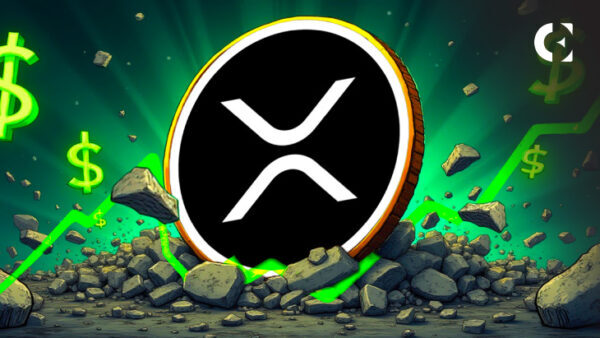- Crypto lawyer Bill Morgan said Cyber Capital founder Justin Bons miscast XRP as permissioned.
- Bons listed 11 large-cap tokens as “permissioned,” warning of “centralization disguised as crypto.”
- Morgan cited ETF filings that describe the XRPL as public and permissionless, rejecting the claim.
A fresh dispute over XRP’s design flared after Justin Bons, founder of Cyber Capital, labeled XRP a permissioned, centralized cryptocurrency. Bill Morgan, a crypto lawyer who tracks the XRP case closely, pushed back and called the description a recycled talking point from 2017. The exchange reignited a long-running argument over how decentralization should be defined and measured for large networks.
Why has this XRP debate resurfaced
In his latest post on X, Morgan accused Bons of “parroting” a 2017-era FUD by describing XRP as a centralized cryptocurrency.
Morgan’s rebuttal and the XRP ETF filings point
Morgan referenced Bons’ post, where he listed 11 of the top 100 cryptocurrencies by market cap, claiming they run on permissioned blockchains that claim to be permissionless. The cryptocurrencies Bons listed include BNB, XRP, XLM, HBAR, MNT, and POL. Others are VET, ARB, OP, STX, and STRK.
Bons warned his followers on X to beware of the cryptocurrencies he listed, labeling them as “centralization disguised as crypto.” According to the Cyber Capital founder, cryptocurrency’s value is based on decentralization.
The XRP centralization narrative is a 2017-era FUD
Meanwhile, Morgan noted that every applicant for a spot or futures XRP ETF has filed documents with the SEC describing the XRPL as permissionless and public. According to the renowned cryptocurrency lawyer, Bons is running a forlorn narrative designed to create fear among XRP investors.
It is worth noting that XRP faced heavy criticism in the past because of the same narrative that Bons is pushing, leading to a protracted legal battle between Ripple, the fintech company behind XRP, and the SEC, which lasted several years. Earlier this year, a US court resolved the case with both parties filing for a dismissal.
FUD slowed XRP’s growth in the past
The FUD created by the centralized narrative toward XRP affected the cryptocurrency’s development, slowed its adoption, and led to a stunted growth of the digital asset. Notably, Many crypto users classified XRP in the same category as Bitcoin and Ethereum in the early stages, with the cryptocurrency developing at a similar pace during its early days.
Morgan considers Bons’s “permissionless” narrative toward XRP an ill-perceived attempt to discredit the cryptocurrency, especially when the broader crypto community has aligned with the legally certified classification of the XRPL as a permissionless protocol.
Related: XRP Crash Today Is a Liquidity Grab, Not a Breakdown – Analyst
Disclaimer: The information presented in this article is for informational and educational purposes only. The article does not constitute financial advice or advice of any kind. Coin Edition is not responsible for any losses incurred as a result of the utilization of content, products, or services mentioned. Readers are advised to exercise caution before taking any action related to the company.







